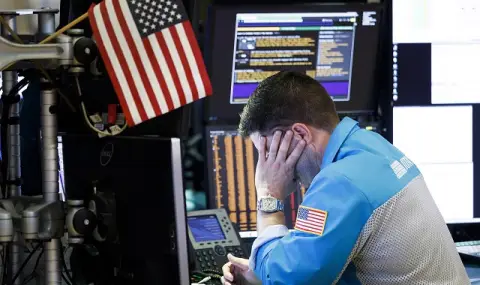Economic recession is beginning to grip the US economy, as recent unemployment data beat the most pessimistic forecasts, sending waves of worry among traders in Europe and Asia.
Until a few days ago, there was enthusiasm in the market because of the expectation that the Federal Reserve (Fed) would cut interest rates in September and thus increase economic activity.
"Now, however, fear is starting to intensify as concerns grow that the Fed may not act quickly enough to keep the US labor market in good shape. Friday's worse-than-expected jobs report confirmed those concerns, CNN wrote in its report.
According to a number of analysts, the adjustment of the interest rate should not have been delayed. One FT columnist warned: "The economy is not slowing linearly" and "the recession warning lights are flashing".
The sudden spike in unemployment is evidence that the country's labor market is cracking. Already on Thursday, the Dow fell by more than 600 points, and according to the media, we may already be in a new economic phase - a slowdown in hiring personnel. The S&P 500 fell 1.5%, and the tech-heavy Nasdaq Composite fell 2.5%.
The new week started badly - with Dow Jones and Nasdaq expected to lose more than 900 points each - 2.3% and 5%, respectively. The expected decline in the S&P 500 is 4 percent.
The Vix index, which measures investors' expectations of 30-day volatility in the S&P 500, jumped 160% to its highest level since the outbreak of the pandemic.
Speaking of the technology sector, many of the poor results of giants such as Intel carry a clear message - investments in artificial intelligence are extremely large, and their results are still too controversial. On top of that, it's not clear what the regulatory burden behind Oceana will be on these technologies - and the EU has already adopted uniform rules that the leading players probably don't like.
In Japan, the Nikkei 225 had already fallen to levels not seen since the pandemic on Friday. The new week took him to levels he hasn't been at in 37 years.
London's FTSE 100 is also down 3 percent - or down 250 points.
And the worst may be yet to come. According to investment-focused online publication The Motley Fool, we could see a market crash as early as August. What will be the scale of this collapse? An investor who made billions in the stock market commented to the WSJ that the stock could lose more than half of its price.
In his words, the US is in "the biggest bubble in human history", and the main culprits for it are the large public debt and inflated market valuations of companies.
